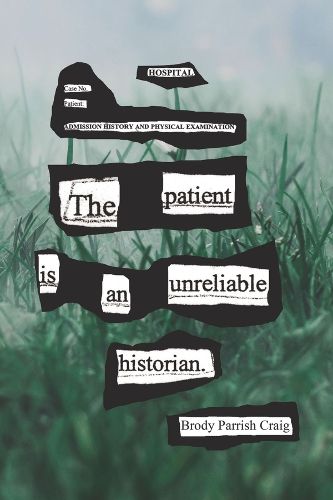Readings Newsletter
Become a Readings Member to make your shopping experience even easier.
Sign in or sign up for free!
You’re not far away from qualifying for FREE standard shipping within Australia
You’ve qualified for FREE standard shipping within Australia
The cart is loading…






A poetry collection that questions the current construction of psychiatric treatment while speaking through lived experience and advocating for disability justice.
The poems of Brody Parrish Craig's new collection upends narratives around current psychiatric treatment models to focus on the lived experience of survivors and to speak toward liberation, abolition, and disability justice. Titled after the author's own medical records, The Patient Is an Unreliable Historian questions the prevailing narrative that the medical industry knows stories of disability and madness better than those who have lived them.
Craig uses lyricism to expose the intersection of madness and criminality in contemporary American culture, moving through institutions, community spaces, and loss of kin. Through the course of the collection, the speaker turns toward irreverence and interrogation, carves out their own freedom, and challenges the script of the patient, the mad, and the "criminal." These poems deconstruct the "patient" to set the person free.
$9.00 standard shipping within Australia
FREE standard shipping within Australia for orders over $100.00
Express & International shipping calculated at checkout
A poetry collection that questions the current construction of psychiatric treatment while speaking through lived experience and advocating for disability justice.
The poems of Brody Parrish Craig's new collection upends narratives around current psychiatric treatment models to focus on the lived experience of survivors and to speak toward liberation, abolition, and disability justice. Titled after the author's own medical records, The Patient Is an Unreliable Historian questions the prevailing narrative that the medical industry knows stories of disability and madness better than those who have lived them.
Craig uses lyricism to expose the intersection of madness and criminality in contemporary American culture, moving through institutions, community spaces, and loss of kin. Through the course of the collection, the speaker turns toward irreverence and interrogation, carves out their own freedom, and challenges the script of the patient, the mad, and the "criminal." These poems deconstruct the "patient" to set the person free.